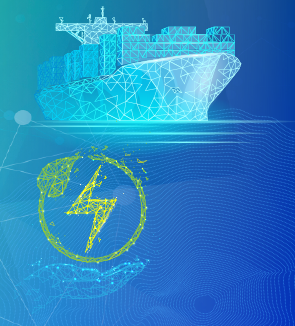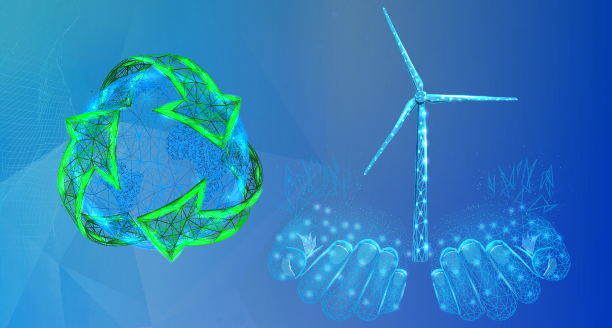Introduction
Seabed mining is rapidly emerging as a contentious resource extraction issue. Rich potential as much as genuine challenge, this new frontier will require careful approach, innovation, and a deep sense of respect for ocean ecosystems.
As we race towards a green energy tomorrow, the irony is stark: the same minerals needed for that change are buried beneath the ocean. Cobalt, nickel, and rare earth metals, so important for batteries and clean tech, can be found in profusion on the ocean floor [1]. And as we struggle to save the planet and cut carbon emissions, we risk unleashing a new era of devastation. Deep-sea mining has the potential to disrupt delicate marine habitats, irreparably harming biodiversity and oceanic carbon sequestration. The craters left behind by the pioneering experiments are a sobering reminder of the ecological cost this endeavour can have.
Deep-sea mining is, on the one hand, an intriguing answer to the mineral deficits stalling our green revolution. But then, too, it is a monstrous threat to the very world which we are attempting to save. As we delve deeper into the ocean's riches, we must confront the uncomfortable truth: our efforts to save the planet might inadvertently lead to its further degradation. The challenge is the balance between extracting resources and preserving the environment so that our search for a sustainable future does not damage the health of the ocean.

Charting the unknown
Technologies such as remotely operated vehicles (ROVs) and autonomous underwater vehicles (AUVs) for deep-sea mining are the product of human innovation. They can navigate the depths of the ocean floor, harvest the polymetallic nodules and release mineral deposits accurately [2] [3].
However, the harsh underwater environment poses significant risks to equipment, leading to frequent malfunctions and costly repairs.[2] In addition, the energy-hungry nature of this venture raises questions about their sustainability and carbon footprint. [4] Are these innovations really in line with our environmental aspirations, or are we going too far in advancing technology?
The feasibility of deep-sea mining technology is also questionable. Although they have opened otherwise untapped mineral riches to us, economic viability is questionable.[5] [6] Their exorbitant development, deployment, and upkeep charges can easily overcompensate for the investments' returns, considering the unstable market rates of minerals. [5] In addition, the environmental price tag cannot be overlooked. Interference with marine ecosystems and the risk of long-term ecological damage shadow their viability. [7] [8]
As we look closer at the intricacies of deep-sea mining, we must confront the numerous challenges and peer into the possibilities of solutions. From technological innovation to regulatory initiatives, the way ahead demands a comprehensive approach that strikes a delicate balance between economic appeal and environmental safety.

Challenges and solutions
The Blake Plateau, off North Carolina, carries the scars of an over 50-year-old experiment, the initial pilot operation of deep-sea mining.[9]1[2] Microbiologist Samantha Joye calls the Blake Plateau one of the most magically diverse environments she has ever had the privilege of working on. [9] The area is lit by glowing sea creatures and strange lifeforms, but also shows the environmental damage caused by deep-sea mining.
But there have been some successful technology deployments that hold out promise. The Metals Company has just completed a world-first test of its deep-sea mining technology, successfully recovering polymetallic nodules from the abyssal plain using an integrated collector and riser and lift system.[10] This achievement demonstrates that, with the right technology and strict environmental testing, it is possible to remove some of the risks of deep-sea mining, but the full impact of the MV Hidden Gem will only be realised in time.
Environmental organisations are heatedly against the push to advance deep-sea mining, referring to it as a reckless gamble with our world's most delicate ecosystems. They believe the deep ocean, which boasts its own special and vastly unexplored biodiversity, is not a resource to be exploited but a global treasure to be conserved. They are calling for the ethical duty to preserve ocean ecosystems for coming generations, a warning that irreversible damage from deep-sea mining can have cataclysmic effects on oceanic carbon sequestration and world biodiversity. [13] [14] The ethical ground is clear: the deep sea is the common heritage of mankind, and preserving it is a moral duty.
Opposition protests to deep-sea mining have been spectacular and effective. Greenpeace's protests at sea against the Danish-flagged MV Coco of Nauru Ocean Resources Inc. included illegal boarding and substantial interference with its operations.[15] Kerala fishermen have staged protests against deep-sea sand mining in India, demanding thorough environmental studies and criticising government plans.[17] Both of these examples indicate the strong resistance and the extremes to which environmental activists will go to protect marine life. The potential fallout of this war is enormous. If the environmentalists win in stopping deep-sea mining policies, it could establish a strong precedent in international environmental management, reiterating the need for strong protection and sustainable practices. [15] [16] But if they lose, the ramifications could be catastrophic. The race to develop deep-sea mining has the potential to deliver broad-spectrum environmental devastation, shattering the fight against climate change and safeguarding ocean ecosystems. [17]
Deep-sea mining is heralded by many as a game-changer for the global economy and the green energy transition. Proponents argue that tapping into these underwater resources can alleviate the pressure on terrestrial mining, which often leads to significant environmental degradation. By diversifying supply chains and lessening dependence on onshore supplies, deep-sea mining has the potential to promote sustainable development and technological innovation.[18] This view perceives the ocean minerals as a means of attaining a cleaner and greener future.[18]



There are advocates for deep-sea mining that are approaching from numerous different fronts, including governments, business, and industry stakeholders. Deep-sea mining is put at $300 billion by the White House that will enter the economy of the US and create 100,000 jobs within a decade.[19] The Metals Company and Lockheed Martin are two of the giants in the industry that are investing heavily in making deep-sea mining technology a reality as a profitable venture to utilise essential minerals for the shift towards green energy. These stakeholders believe that deep-sea mining is economically feasible and necessary for decreasing reliance on foreign mineral deposits and national security.
The Indonesian Grasberg Mine is a prime example. Though economically sound, this giant copper and gold mine has caused enormous environmental devastation through deforestation, loss of habitat, and water pollution.[11] Thirty years on, the transformation of regulatory frameworks in subterranean mining, influenced by technology and the environment, has marked a pivotal industry transition towards sustainability. As we venture into deep-sea mining, the stakes are higher than ever. Underground mining expertise is at the heart of this new frontier, where ROV Specialists, engineers, and geologists encounter new challenges like never before. Our experience on-land could be the key to linear progress and leading the way towards sustainable and responsible resource recovery. The potential for innovation and employment creation is vast. Can project managers balance economic development with environmental stewardship using lessons learned? Can our terrestrial mining experience provide a solid foundation to prioritise sustainability over profit?
Conclusion
The ocean floor is of particular importance to our green energy future with deposits of the minerals required for clean technology. Yet, this potential is to be balanced against the danger of massive environmental damage. Economic interest and protection of the environment is an active debate with some very strong arguments on each side.
What we can learn from onshore mining will inform a more environmentally friendly future for deep-sea mining. Regulatory models that have been created for underground mining, which are pushed forward by technological innovation and environmental concerns, highly prioritise striking a balance between economic growth and environmental protection. From these lessons, we can build resilient regulatory frameworks, invest in the most advanced technologies to reduce environmental impact, and spearhead the preservation of oceanic ecosystems.
The decisions we make today regarding deep-sea mining will have long-term consequences. We must weigh the environmental concerns and ensure that economic gain is not achieved at the expense of our oceans. Using knowledge and expertise developed through terrestrial mining, we can address the intricacies of deep-sea mining and move towards an ecologically friendly and responsible means of accessing resources. The future of our relationship with the sea is in well-informed, balanced decisions.
Sources
[1] Deep Sea Mining: Balancing Opportunities and Challenges for Sustainable Resource Extraction https://www.ijtsrd.com/papers/ijtsrd67180.pdf
[2] How Robots Are Uncovering the Mysteries of the Deep https://oceanexplorer.noaa.gov/explainers/technology.html
[3] In Ocean Depths, MBARI's Robots Race Against Time for Deep-Sea Research https://insidetelecom.com/mbaris-deep-sea-technology-for-ocean-exploration/
[4] Deep-Sea Deployment: Remote Operated Vehicles in Marine Engineering https://d1meba.org/deep-sea-deployment-remote-operated-vehicles-in-marine-engineering/
[5] Analysis of Different Models for Improving the Feasibility of Deep-Sea Mining https://link.springer.com/chapter/10.1007/978-3-030-87982-2_15
[6] Processing Technologies, Metal Recoveries & Economic Feasibility of Deep Sea Mining https://www.isa.org.jm/wp-content/uploads/2022/12/NORI-1.pdf
[7] The environmental impacts of deep-sea mining https://bulletin.ceramics.org/article/the-environmental-impacts-of-deep-sea-mining/
[8] Environmental risk weighs heavily on the possible rewards of deep sea mining https://www.atlanticcouncil.org/blogs/energysource/environmental-risk-weighs-heavily-on-the-possible-rewards-of-deep-sea-mining/
[9] Scars of the sea: World’s first deep-sea mining still haunts the ocean floor https://interestingengineering.com/science/worlds-first-deep-sea-mining-left-scars
[10] The Metals Company completes a world-first test of deep-sea mining system https://dsmobserver.com/2022/12/the-metals-company-completes-a-world-first-test-of-deep-sea-mining-system/
[11] Grasberg mine https://en.wikipedia.org/wiki/Grasberg_mine
[12] Scars from the world's first deep sea mining test 50 years on https://www.bbc.com/future/article/20250509-blake-plateau-the-uss-50-year-old-scars-from-the-worlds-first-deep-sea-mining-test-site
[13] Environmental groups fear Trump’s order to speed deep-sea mining will harm ecosystems https://www.local10.com/tech/2025/04/25/environmental-groups-fear-trumps-order-to-speed-deep-sea-mining-will-harm-ecosystems/
[14] Trump's deep-seabed mining move "an environmental disaster" https://oceanographicmagazine.com/news/trumps-deep-seabed-mining-move-an-environmental-disaster/
[15] The Law of the Sea and Disruptive Protests Against Deep Seabed Mining: The MV Coco Events https://opiniojuris.org/2024/04/23/the-law-of-the-sea-and-disruptive-protests-against-deep-seabed-mining-the-mv-coco-events/
[16] Greenpeace could be thrown out of UN deep-sea mining body https://www.bbc.com/news/science-environment-68576735
[17] Protest at sea against Centre’s deep-sea sand mining plan https://www.thehindu.com/news/national/kerala/protest-at-sea-against-centres-deep-sea-sand-mining-plan/article69306582.ece
[18] 20 Pros And Cons Of Deep Sea Mining https://prospluscons.com/pros-and-cons-of-deep-sea-mining/
[19] Trump signs controversial order to boost deep-sea mining industry https://www.aljazeera.com/news/2025/4/25/trump-signs-controversial-order-to-boost-deep-sea-mining-industry